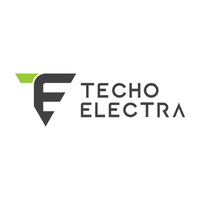
Techo Electra
View Brand PublisherWith its range of e-scooters, Techo Electra is making its mark in the Indian EV mobility space
With a strong policy push from the government, growing manufacturing expertise and a focused effort by innovative startups, the electric mobility sector in India has been picking up pace in recent years. The increasing consumer interest to switch to a greener mode of transportation has further boosted the sector. Pune-based Techo Electra is among the innovative EV mobility companies which has been actively participating in the growth of the country’s EV ecosystem.
Performance, style and affordability
Founded by Prakash Bhootra in 2018, the startup launched three models of e-scooters priced between Rs 43,000+ to Rs 72,000, a year later. “Techo Electra’s range of scooters — Neo, Raptor and Emerge — promise a range of 90 kms on single charge, leading to a substantial reduction in fuel bills for the consumer. In addition to the high mileage, the e-scooters are engineered to make riding easy without the complications that come with traditional mobility solutions.” explains Prakash. With affordable price points, design aesthetics and performance, the e-scooters have emerged as a viable alternative for those wanting to switch to a sustainable mobility solution. This year, the startup launched its fourth electric scooter that aims to address the needs of last-mile delivery and the transportation requirements of small businesses. Called Saathi, the electric moped offers a mileage of 60-70 km on a single charge. “The cost of a 60 km run on Saathi will be just Rs 12,” he says.
Its four e-scooter models are sold by 50+ dealers across major states in India. “We have over 15,000 happy customers,” attests Prakash. At the heart of Techo Electra’s success has been its focus on continuous R&D and a keen understanding of the pulse of the consumers. “We have a dedicated R&D team who are constantly working on adding new features to our existing models as well as on newer models to address the needs of the evolving customer base. From working on optimising existing models to deliver superior performance to onboarding new technologies to enhance the experiential factor, they do it all. They have been able to crack the complex puzzle of price and performance. Besides being budget-friendly, our e-scooters also deliver on performance,” shares the founder.

The startup is looking to expand its geographical footprint in the country. “And, with the onset of the pandemic and soaring oil and petrol prices, there has been a lot of conversations about sustainability. People are now giving EV a serious consideration than ever before,” says Prakash. To further tap into the consumer interest in the sector, the startup is not only working on additional newer features and higher benchmarks for its existing line of products but also on newer vehicles. “Work for the launch of a new high speed e-scooter is underway,” reveals Prakash.
Focus on delivering quality
While the startup has bootstrapped its way to growth, the founder says the journey hasn’t been easy, especially on the manufacturing front. “Typically, manufacturing involves huge capital expenditure, designing of the right products, which often has a long cycle involving multiple iterations, etc. A wrong bet can mean a huge loss of money and time, loss of customer confidence, team morale, disappointment in the dealer network, resulting in a big setback for the company,” he explains. “There wasn’t a single strategy that we adopted to address these challenges. We constantly assessed the circumstances and addressed the challenges at hand.”
While challenge on the manufacturing front was critical to address, Techo Electra also had to get its math right in terms of what it would take to create a differentiating experience for the customer - right from the purchase to usage. “This meant we had to work on ensuring that there were enough Point of Sale outlets across key cities, design a marketing campaign and keep the entire workforce engaged. But at the core, the strategies were guided by a simple focused thought - to launch a quality product. And, this worked well for us,” Prakash says.
Strong growth signal driven by a favourable market evolution
Even with the government push, increased consumer interest, growing startup innovation, Prakash says that the electronic two-wheeler industry in India is still at a nascent stage. “While we have been able to build a strong foundation and grow steadily, we need to build a strong market affinity and penetrate across different customer segments,” he says. The startup is now working towards reaching out to corporate and institutional partners for potential engagement.
The e-mobility market has witnessed rapidly changing consumer trends, especially in the last five years. “Consumers today expect e-mobility solutions to deliver high-mileage and fast-charging features. The product looks are equally important too, if not more. This is where it becomes relevant to continuously enhance the products. In addition, by launching new products and expanding your product portfolio, you are able to cater to different customer segments and build a considerable market share. This has been our strategy so far. And, will continue to be,” shares Prakash.
Prakash is confident that the EV mobility market’s upward momentum will positively impact startups like Techo Electra.
“Market projections point that by 2030, the EV market will grab 70 percent of the mobility market due to economic, political and environmental reasons. Given the projections, we are positive that we will continue to grow and mark our space in the sector,” he says.







